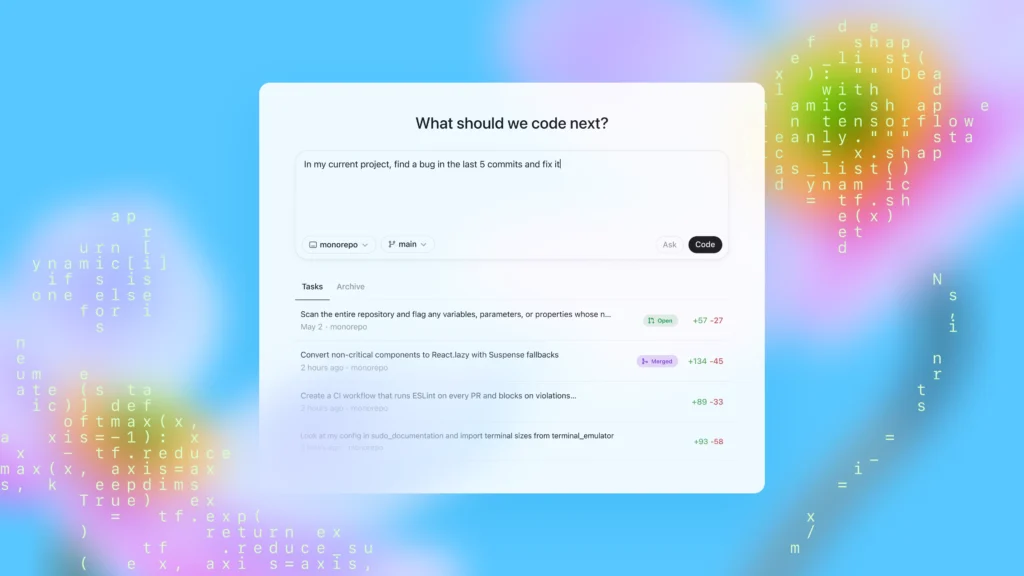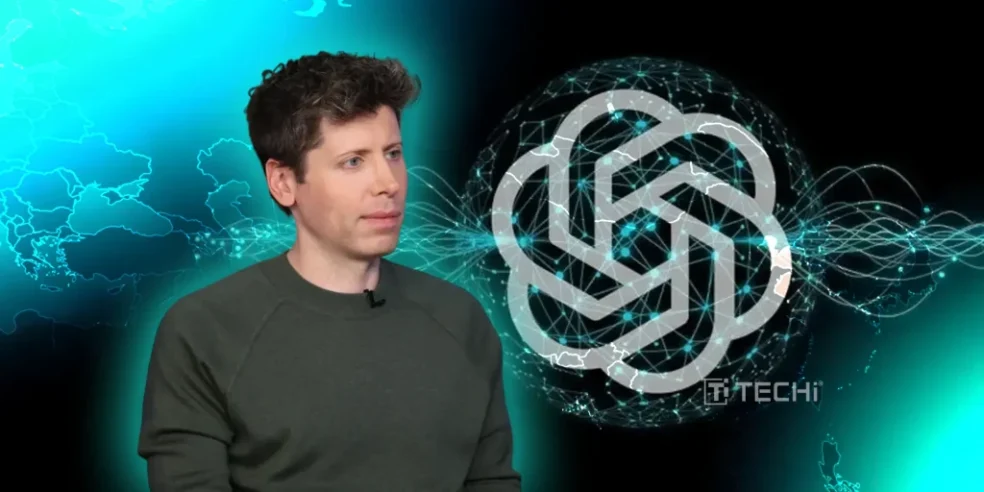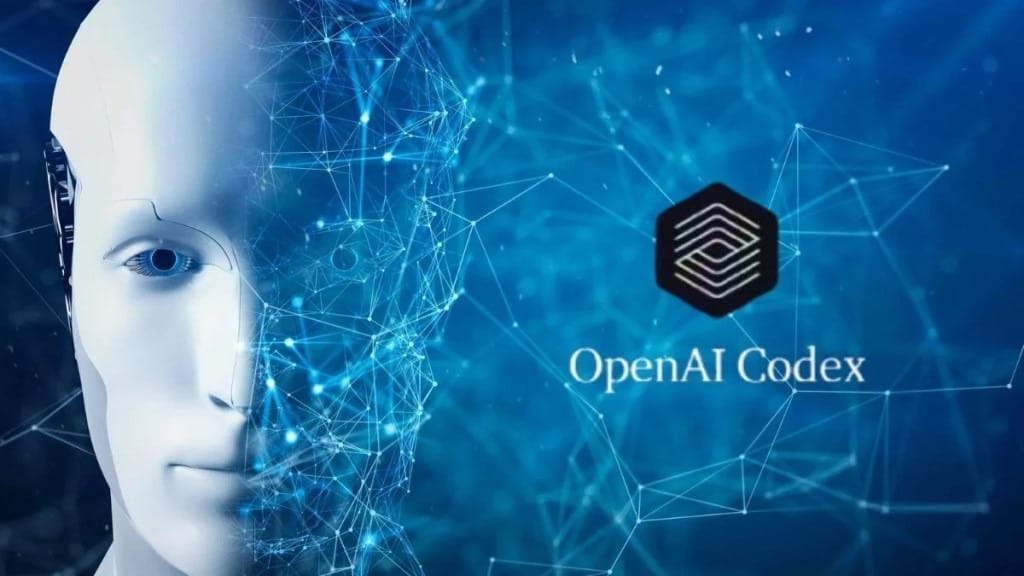OpenAI has announced the preview availability of Codex, its groundbreaking AI-powered programming agent designed to execute parallel development tasks within an isolated cloud environment. This marks a significant leap in automated software development. Promising to enhance efficiency and accelerate the pace of innovation for developers worldwide.
OpenAI Unlocks New Era of Coding with Codex AI Agent for Parallel Cloud Development
Powered by the codex-1 model—a variant of the OpenAI o3 system specifically optimized for software engineering—Codex is currently accessible to ChatGPT Pro, Enterprise, and Team users. OpenAI plans to extend availability to Plus and Edu profiles in the near future.
At its core, Codex operates by executing each development task in a secure, virtual container, preloaded with the user’s code repository. Developers can assign a variety of functions directly from the ChatGPT sidebar, including writing new code, resolving bugs, generating automated tests, or drafting comprehensive documentation.
Crucially, these tasks are processed independently, in parallel, and without any internet access, ensuring a controlled, secure, and completely isolated environment.
According to OpenAI, Codex has undergone extensive training through reinforcement learning on real-world coding tasks across diverse environments. This rigorous training enables the AI agent to generate code that not only adheres to common style standards found in pull requests. But also automatically runs tests until satisfactory results are achieved, ensuring high-quality output.
Seamless Integration with Real-World Development Environments
Codex’s environment is meticulously designed to adapt to a user’s actual development setup. It supports the execution of common commands such as linters, type checkers, or full test suites.
Furthermore, it can edit files and meticulously document each step taken through verifiable logs. Upon task completion, Codex performs a commit within its isolated environment. In the same way, providing full traceability through detailed terminal logs and test outputs.
The system also supports specific configuration files named AGENTS.md (similar to README.md). Developers can use these files to define instructions for code navigation, specify test commands to execute, or dictate style guidelines for the agent to follow. Interestingly, internal testing has demonstrated that the codex-1 model performs robustly even in the absence of these explicit configuration files.
In terms of performance, each task can be completed within a flexible timeframe ranging from 1 to 30 minutes, depending on its complexity.

Unwavering Focus on Security and Malicious Use Prevention
Designed with paramount attention to security and transparency, Codex operates within an execution environment that strictly prohibits internet connectivity.
Access is exclusively limited to the user’s code and pre-established dependencies via configuration scripts. This critical measure is a direct safeguard against potential misuse, such as the development of malicious software.
Furthermore, the AI agent is engineered to identify and reject tasks that involve the creation of potentially dangerous code. This includes maintaining a clear distinction from legitimate low-level engineering techniques that might share similar technical components.
OpenAI has also reinforced its internal security evaluation policies and updated its System Card to reflect these comprehensive protective measures. Ensuring a trusted development environment.

Real-World Impact: Practical Applications Across Leading Tech Companies
Codex is already demonstrating its transformative potential within and beyond OpenAI. Internal teams at OpenAI leverage Codex to automate repetitive tasks like code refactoring, test generation, and documentation drafting. According to the company, this has significantly reduced interruptions and helped engineers maintain concentration on core development.
Several external technology companies have participated as early evaluators, providing valuable insights into Codex’s practical applications:
Cisco is exploring Codex’s application in large-scale product development, indicating its scalability for complex enterprise needs.
Temporal utilizes the agent to accelerate the development of new functionalities and streamline bug debugging, highlighting its efficiency benefits.
Superhuman has integrated Codex into its workflow to enhance test coverage and enable lightweight code contributions from non-technical profiles, democratizing development.
Kodiak employs the agent for developing advanced debugging tools, reorganizing complex codebases, and aiding in the comprehension of intricate parts of its tech stack.
Expanding Accessibility: Updates to Codex CLI and the codex-mini-latest Model
In parallel with its cloud-based agent, OpenAI has updated Codex CLI, its local terminal-based coding agent. This update integrates a reduced version of the codex-1 model, dubbed codex-mini-latest. This optimized model is specifically designed for low-latency workflows, making it ideal for quick queries and inline code edits.
The codex-mini-latest is now available as a default option in the CLI and through the OpenAI API, with competitive pricing at $1.50 per million input tokens and $6 per million output tokens, benefitting from a significant 75% discount for prompt caching.
To further simplify access, OpenAI has streamlined the connection process between a developer’s account and Codex CLI, eliminating the need for manual API token generation.
ChatGPT Pro and Plus users will soon be able to authenticate their accounts directly and receive free credits to explore the model’s usage for the next 30 days, inviting a broader developer community to experience the future of AI-assisted coding.
Current Limitations and Future Development Trajectories
Currently, Codex, though powerful, operates with certain limitations inherent to its preview status. These include the inability to interpret visual inputs for frontend work or to be redirected mid-task execution.
It also represents a paradigm shift from traditional interactive editing. Functioning as an asynchronous process that necessitates prior planning rather than real-time, interactive adjustments.
Looking ahead, OpenAI envisions a future of even more fluid collaboration between developers and AI agents, both in real-time and asynchronously. Mid-term plans include capabilities to guide the agent while it works, receive proactive updates, and assign tasks directly from multiple tools such as issue trackers or continuous integration systems.
The model of agent collaboration proposed by Codex aims to become a standard practice in software engineering, allowing teams to delegate low-value or highly repetitive tasks, while maintaining essential human oversight during the final integration of the generated code.
As Codex continues its evolution, it promises to be a pivotal force in the ongoing transformation of software engineering. By automating more aspects of development, OpenAI aims to empower developers to focus on innovation and higher-value problem-solving, cementing AI’s role as an indispensable partner in the future of coding.

